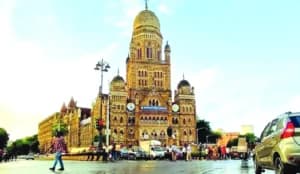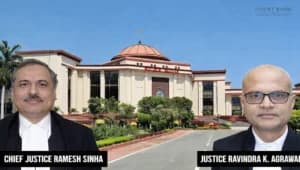The Delhi High Court has reinforced the ecological importance of the Yamuna floodplains, ruling that any unlawful encroachments or constructions in this area pose a serious environmental threat.
"The floodplain area is a designated prohibited activity zone and serves as a vital element of the river ecosystem. Encroachments disrupt the natural water flow, leading to flooding in adjacent regions," observed Justice Dharmesh Sharma.
The court stressed that illegal settlements significantly contribute to worsening floods in Delhi by obstructing water flow through drains and riverbeds, thereby exacerbating flooding.
Read Also:- Supreme Court Urges Rohingya Children to Seek School Admissions, Asserts Their Right to Education
Court Rejects Slum Residents’ Plea Against Demolition
The case arose from a petition filed by the Dhobi Ghat Jhuggi Adhikar Manch, which sought to prevent the demolition of slum settlements in the Batla House area. The petitioners requested that the Delhi Development Authority (DDA) suspend further demolitions and conduct a survey of affected residents for rehabilitation under the Delhi Urban Shelter Improvement Board (DUSIB) Policy, 2015.
However, the court dismissed the plea, citing that the DDA had legally acquired the land for river channelization and environmental protection, making the removal of the encroachers necessary for the public interest.
According to the DUSIB Act, 2010, and the 2015 Policy, not all slum dwellers are automatically entitled to alternate housing. The court referenced Clause 2(a)(i) of the 2015 Policy, which states:
"Only those JJ Bastis established before January 1, 2006, are entitled to protection from removal without provision for alternate housing."
Since the Dhobi Ghat slum is not part of the 675 notified JJ Bastis listed by DUSIB, the court ruled that its residents were occupying the area illegally and were not eligible for rehabilitation under the policy.
Read Also:- Supreme Court Holds Authorities Accountable for Manual Scavenging Deaths: Urgent Explanations Demanded
The court emphasized that the illegal constructions at Dhobi Ghat directly harm the environment and violate various judicial and environmental regulations.
"The unlawful construction in the area poses a significant threat to the ecologically sensitive Yamuna floodplains. The removal of the petitioner union from the site serves the greater public interest," the court asserted.
This decision aligns with previous judgments, including the National Green Tribunal’s (NGT) order in Manoj Misra v. Union of India, which called for the removal of all encroachments on the Yamuna floodplains.
The petitioners also requested compensation of ₹1,00,000 per affected family and temporary shelters with essential amenities. However, the court ruled that since the petitioners had no legal right to occupy the land, such demands could not be entertained.
"Encroachers cannot claim a right to compensation or alternate housing when their occupation itself is illegal," the court clarified.
Read Also:- Delhi High Court: No Presumption of Pending Investigation Without Proof in Sabka Vishwas Scheme Case
The ruling follows a series of similar decisions emphasizing that unauthorized slum dwellers on public land cannot claim rehabilitation as a right unless they meet the required policy criteria. Cases such as Ajay Maken v. Union of India and Sudama Singh v. Government of Delhi have upheld the need for documented surveys and eligibility criteria before granting rehabilitation.
Additionally, the Delhi Development Authority (DDA) argued that the site had been acquired in 1982 and 1984 for environmental restoration projects, making it legally designated for conservation, not residential use.
Title: DHOBI GHAT JHUGGI ADHIKAR MANCH v. DELHI DEVELOPMENT AUTHORITY & ORS.















